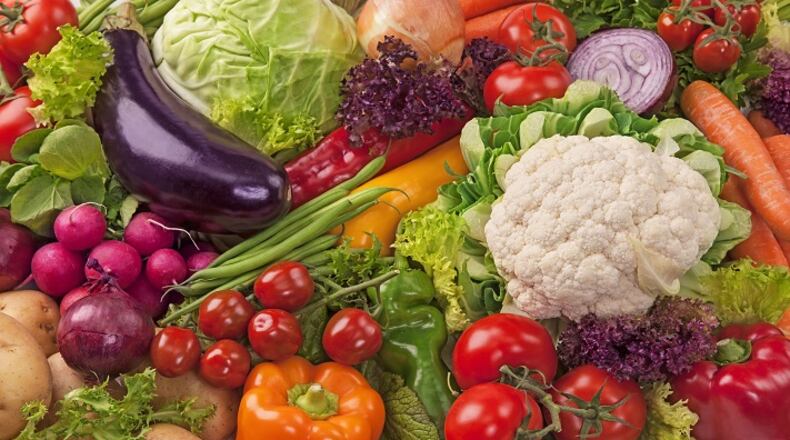The recommendation of doubling up on fruits and vegetables is a result of a meta-analysis of 95 studies conducted by scientists from Imperial College London. The British researchers discovered that a menu that includes 10 daily servings of whole plant foods leads to lower rates of heart attack, stroke and cancer. They estimated that as many as 7.8 million premature deaths would be avoided each year worldwide if we followed this diet. While the study did not prove a strict cause-and-effect link between, it was one more notch in the healthy-eating arsenal.
So how much are 10 servings? Roughly that’s 800 grams of produce. Or 10 small bananas or apples. Or 30 tablespoons of cooked spinach, peas, broccoli or cauliflower.
“Fruit and vegetables have been shown to reduce cholesterol levels, blood pressure, and to boost the health of our blood vessels and immune system,” study author Dagfinn Aune, of the School of Public Health at Imperial College London, said in a statement. “This may be due to the complex network of nutrients they hold. For instance, they contain many antioxidants, which may reduce DNA damage, and lead to a reduction in cancer risk.”
Some vegetables and fruits were more salubrious than others. Researchers said that apples, pears, citrus fruits, green leafy vegetables, cruciferous vegetables (think broccoli, cabbage and cauliflower), and green and yellow vegetables (green beans, spinach, carrots and peppers) seemed to be the best.
Researchers concede not everyone will be as diligent in their consumption of the good stuff, but even eating some — just over two portions a day — made a difference. Consuming 200 grams of produce daily, researchers added, is still associated with reductions in heart disease, stroke, cancer and cardiovascular disease.
The study, published in the International Journal of Epidemiology, analyzed information for two million people, and studied as many as 43,000 cases of heart disease, 47,000 cases of stroke, 81,000 cases of cardiovascular disease, 112,000 cancer cases and 94,000 deaths.
A word of caution: Popping a pill won’t deliver the same benefits.
“Most likely it is the whole package of beneficial nutrients you obtain by eating fruits and vegetables that is crucial in health,” Aune said. “This is why it is important to eat whole plant foods to get the benefit, instead of taking antioxidant or vitamin supplements,” which have not been shown to reduce disease risk.
About the Author

